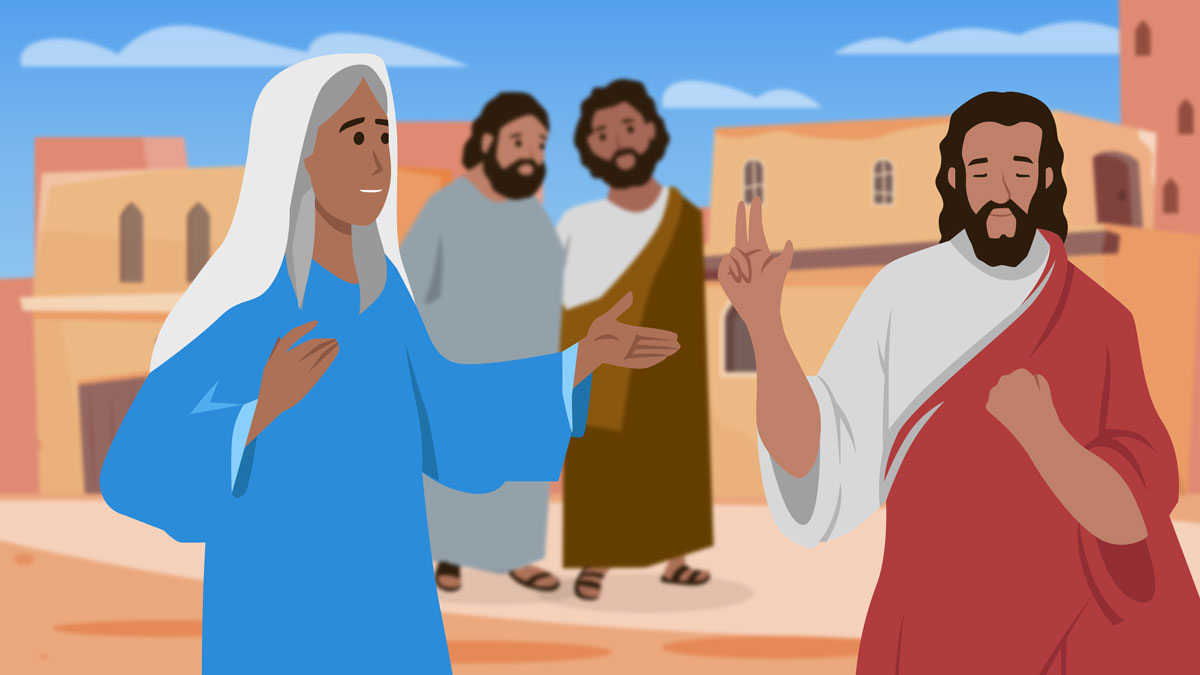I was recently reflecting on Jesus’ strange conversation with the mother of James and John in Matthew 20:20–28. Almost out of the blue, she confronts Jesus and says, “Grant that one of these two sons of mine may sit at your right and the other at your left in your kingdom” (verse 21). Some scholars have suggested this woman was friends with (or perhaps related to) Jesus’ mother. While it’s undoubtedly audacious (and blatantly nepotistic), I can perhaps understand where she’s coming from. What would you do if you had the chance to install a family member (or two) into what you believed will be the most powerful political movement of your generation? Make no mistake: Jesus’ followers thought He was going to be the Messianic king of not only Israel—but the world.
They also believed the Scriptures they had been raised with were being fulfilled in real-time. “The sun will be turned to darkness and the moon to blood before the coming of the great and dreadful day of the Lord” (Joel 2:31); “Wail, for the day of the Lord is near; it will come like destruction from the Almighty” (Isaiah 13:6); “For the day is near, the day of the Lord is near; it will be a day of clouds, a time of doom for the nations” (Ezekiel 30:3).
Jesus’ disciples sincerely believed He would unleash “doom” upon the Roman Empire and from the ashes, a new Israelite regime would reign forevermore. If that was your conviction, wouldn’t you do whatever it took to ensure you and your family were on the “right side of history”?
However, as we all know, Jesus had something else in mind.
In Matthew 20:17–19, Jesus makes another prediction about His death—the third we see recorded in Matthew. It’s in the context of this prediction that He addresses James and John. “‘You don’t know what you are asking,’ Jesus said to them. ‘Can you drink the cup I am going to drink?’” (verse 22). Misunderstanding Jesus, they reply, “we can”. Jesus then reprimands them by reminding them that only God can decide who will sit by Jesus’ right and left sides. Whatever power they hope to claim through association with Jesus, it’s not what they think.
I recently heard American political advisor and former White House press secretary Jen Psaki speak about the nature of power—specifically, dictatorial power. When we think of dictators, we often envision strong men wielding absolute strength—and that’s by design. Psaki offers a different interpretation. “Dictators aren’t strong,” she says. “They are weak because they cannot be democratically elected. They need to control anyone who could oppose them. You only need to control everything if you’re weak.” Jesus seems to agree with this sentiment, as His next words to the disciples illustrate. “You know that the rulers of the Gentiles lord it over them, and their high officials exercise authority over them. Not so with you. Instead, whoever wants to become great among you must be your servant, and whoever wants to be first must be your slave” (Matthew 20:24–27). Only the weakest, most insecure people feel the need to abuse power. Whether it’s the leader of a nation, a family member or your manager at work, what we do with power says a lot about our character.
If we, like Jesus’ disciples, wish to be great in the kingdom that is coming, we must pay attention. This world will ever tempt us to believe that power is best used to coerce or intimidate in order to get what we want—but according to Jesus, such strength is actually weakness. Too often in the church, we fall victim to worldly thinking by misunderstanding the place of power. Too often we justify sinful methods for the sake of sacred mission. For Jesus, power must be others-centred. True power is serving others, even if there’s no tangible payout for you. True power is “turning the other cheek”, even if you risk being mocked. Ultimate power is laying your life down for others, just as Jesus did for all humanity. Let’s follow the example of Jesus who, though He was strong, chose to be weak, for my sake—and for yours.




